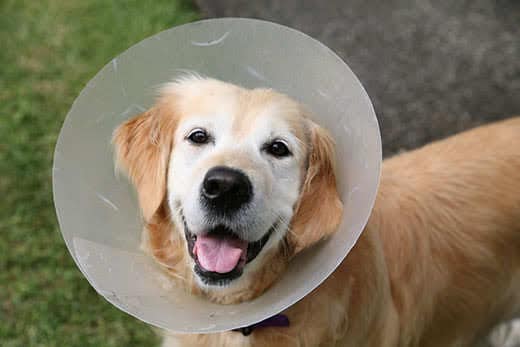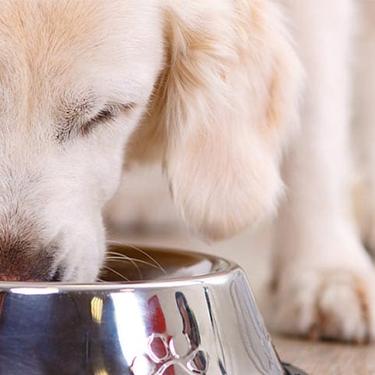
-
Find the right food for your pet
Take this quiz to see which food may be the best for your furry friend.
Find the right food for your pet
Take this quiz to see which food may be the best for your furry friend.
Featured products
 Small & Mini Savory Stew with Chicken & Vegetables Dog Food
Small & Mini Savory Stew with Chicken & Vegetables Dog FoodA delicious complement to the nutrition of Science Diet Small & Mini 7+ dog food
Shop Now Adult Healthy Cuisine Roasted Chicken, Carrots & Spinach Stew Dog Food
Adult Healthy Cuisine Roasted Chicken, Carrots & Spinach Stew Dog FoodDelicious roasted chicken paired with tender vegetables in a succulent stew
Shop Now Adult 7+ Perfect Digestion Chicken, Whole Oats & Brown Rice Recipe Dog Food
Adult 7+ Perfect Digestion Chicken, Whole Oats & Brown Rice Recipe Dog FoodScience Diet's breakthrough nutrition supports ultimate digestive well-being & healthy microbiome for dogs age 7+
Shop NowFeatured products
 Adult Savory Entrée Can Variety Pack Cat Food
Adult Savory Entrée Can Variety Pack Cat FoodPrecisely balanced nutrition with the delicious taste of savory minced chicken to help fuel the energy needs of cats during the prime of their life
Shop Now Adult 7+ Senior Vitality Chicken & Vegetable Stew Cat Food
Adult 7+ Senior Vitality Chicken & Vegetable Stew Cat FoodImproves Everyday Ability to Get Up & Go
Shop Now Adult 7+ Tender Tuna Dinner Cat Food
Adult 7+ Tender Tuna Dinner Cat FoodWith delicious chunks in a decadent gravy
Shop Now -
Dog
- Dog Tips & Articles
-
Health Category
- Weight
- Food & Environmental Sensitivities
- Urinary
- Digestive
- Joint
- Kidney
-
Life Stage
- Puppy Nutrition
- Adult Nutrition
- Senior Nutrition
Cat
- Cat Tips & Articles
-
Health Category
- Weight
- Skin & Food Sensitivities
- Urinary
- Digestive
- Kidney
-
Life Stage
- Kitten Nutrition
- Adult Nutrition
Featured articles
 Do Dogs and Cats have Belly Buttons?
Do Dogs and Cats have Belly Buttons?Learn whether cats & dogs have belly buttons like humans, what the function is, and if there are any health concerns associated with it.
Read More Does My Pet Hate Me?
Does My Pet Hate Me?Learn tips for bonding with your pet if you've ever thought, 'My dog doesn't like me, or 'Why do I have a standoffish cat?'
Read More Why Are Dogs and Cats So Cute?
Why Are Dogs and Cats So Cute?If waggy puppy dog tails and furry kitten yawns make you swoon, you're not alone. Why are cats so cute? And, dogs too! Let's find out!
Read More -


Cone of Shame. Party Hat. Both of these terms all describe the plastic dog cone or soft dog cone that your pup has to wear after a surgery or injury.
The most common nickname for a dog cone is the Elizabethan collar or E-collar, named after the "ruff," a popular collar style in Britain in the late sixteenth-century during the reign of Queen Elizabeth I. When it comes to dogs, however, this collar is more about function than fashion.
They may look silly, but these collars are not meant to embarrass your pet — they're an important part of your dog's healing process.
Choosing a Dog Cone: What are the Options?
Whether you choose a plastic dog cone or a soft dog cone, opt for one that your dog will tolerate well and that you can work with easily. Dog cones are not a one-size-fits-all product, so work with your veterinarian to find the one best suited for your dog's size and type as well as the location of the affected area.
Plastic Dog Cone
Cones made with lightweight, flexible clear plastic are a go-to for many vets. Many prefer them because they're sturdy and keep your dog in check. "My conclusion is that the plastic cone is the only fool-proof way to avoid incision problems," writes Dr. Phil Zeltzman for Trupanion. Most designs come with fabric-lined edges and Velcro closures for ease of use.
 And they're easy to clean: You just wipe off both sides with a damp cloth. You also can add pizzazz to a clear cone by decorating the outside (never the inside) with stickers or decals!
And they're easy to clean: You just wipe off both sides with a damp cloth. You also can add pizzazz to a clear cone by decorating the outside (never the inside) with stickers or decals!
Soft Dog Cone
For dogs who don't tolerate plastic cones well, you can try a foam-padded nylon cone. They come in a variety of styles and colors, most of which use Velcro closures. Many dogs (and dog parents) find soft cones more comfortable because of their flexibility. However, your dog may find ways to nudge the fabric cones aside and access the off-limits area. This can become particularly problematic if you are trying to protect delicate surgery around the eyes or face, as fabric cones cannot and should not be used for surgery of the eyes. Like plastic cones, you can wipe clean a soft cone with some water and gentle soap or even toss it in the washing machine, so long as you always follow product instructions.
Another option is an inflatable cone or an inner tube around your dog's neck. You may even see a dog wearing a cotton T-shirt over their stitches. Speak with your vet before using these or other alternatives to traditional cone, advises Jessica Hamilton, DMV, for MSPCA-Angell, to ensure it's a safe option for your pup.
Why Does My Dog Need a Cone?
Seeing your dog wear a lampshade on their head can be stressful but take heart knowing that vets recommend cones to keep your furry friend safe. Cones prevent pups from scratching or biting an incision or wound, and keep them from licking topical ointments or allergy treatments. Without a cone, your dog may also tear apart surgical staples in just a few minutes, says North Town Veterinary Hospital, which can turn into an expensive and potentially life threatening issue depending on the location of the stitches.


Tasty Tips
How Long Does My Dog Need to Wear the Cone?
A dog cone is a necessary tool for healthy healing. Once you choose the best cone for your dog, remain vigilant about keeping it on for as long as recommended by your vet. If for any reason your dog is struggling to adjust to the cone, consult your veterinarian — do not simply remove the cone to make them more comfortable. The longer they wear the cone, the sooner your furry friend will get used to it.
The length of time that they have to wear the cone depends on the extent of their injury or procedure that was performed to help your dog heal properly. Your veterinarian will give you a timetable of when the cone can come off, at your dog's follow-up appointment after inspecting the surgical or injured area to ensure that it is healing or has healed properly. Even if you suspect your dog is fully healed, it is important to follow your veterinarian's advice and leave it on. Your dog won't hate you for making them wear it, even if it takes time getting used to it.
Managing Your Dog's Cone
Because the cone could impede everyday activities like eating, drinking and even walking around the house, ensure that the cone is the correct size for your dog. Spending time on "body awareness" training with your dog also helps, writes certified dog trainer Cathy Madson for Preventive Vet. If you have a scheduled surgery, Madson recommends getting the cone ahead of time so you can help your dog adapt. Translucent plastic cones allow dogs to see their surroundings better, but again, consult with your vet to see what's best.
The key to helping your dog tolerate a cone is patience and then more patience. Dogs aren't thrilled about wearing a satellite dish around their neck, but with the right cone and a lot of love, you and your best friend will get through this.


Christine O'Brien is a writer, mom, and long-time cat parent whose two Russian Blues rule the house. Her work also appears in Care.com, What to Expect, and Fit Pregnancy, where she writes about pets, pregnancy, and family life. Find and follow her on Instagram and Twitter @brovelliobrien.
Related products
Related articles

Learn about choosing the right dog food to help ensure your adult dog will receive the correct balance of nutrition.

Learn the the dangers of feeding your dog chocolate, which types are most dangerous, and what to do if you discover that they have consumed chocolate.

Proper nutrition for your pregnant or nursing dog is vital to her and her puppy's health. Learn what you should do provide her with the proper nutrients.

Learn how today's wet dog food blends have gotten a face lift, and how you'll provide your dog the nutrition he needs in the form he loves.

Put your dog on a diet without them knowing
Our low calorie formula helps you control your dog's weight. It's packed with high-quality protein for building lean muscles, and made with purposeful ingredients for a flavorful, nutritious meal. Clinically proven antioxidants, Vitamin C+E, help promote a healthy immune system.
Put your dog on a diet without them knowing
Our low calorie formula helps you control your dog's weight. It's packed with high-quality protein for building lean muscles, and made with purposeful ingredients for a flavorful, nutritious meal. Clinically proven antioxidants, Vitamin C+E, help promote a healthy immune system.

